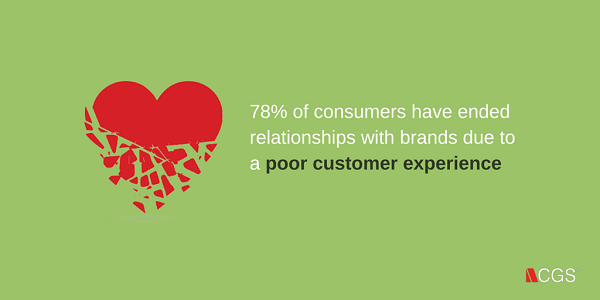Topics
Quality Customer Care or Cutting Costs: Why Not Both?

People demand the best from brands. Research shows that when an individual doesn't receive excellent customer service, they’re likely ditch those businesses for ones that provide truly memorable interactions.
Seventy-eight percent of consumers have terminated relationships with companies after receiving "bad" customer service, and 61 percent of individuals were driven to competitors as a result of a poor support experience, according to Salesforce Desk. People love great customer service so much that around 90 percent of American consumers would spend more if it meant having a "good" customer experience.
As a result of these rising customer service expectations, brands must invest in their customer service strategies unlike ever before. They must provide their customers with a consistent quality of service via phone, Web chat, email, social media and more. But maintaining that consistency requires major investments, massive teams of representatives and a whole new tech stack comprised of more than just CRMs. As such, customer service costs can start to get out of hand. Does it have to?
Determining where to cut spending is not an easy decision. Whether the onus falls on managers or executives, someone must take responsibility for doing so, and at the same time, that decision-maker needs to ensure that he or she does not degrade the customer experience in the process.

External support as a cost-effective solution
To reduce spending associated with customer service strategies, many organizations are turning to outsourced contact centers. In fact, those types of business process outsourcing solutions have become a major market in themselves, and the popularity of leveraging these services is only rising. According to Technavio, the global contact center market is forecast to expand at a compound annual growth rate of 9 percent through 2019, eventually reaching a value of around $9.7 billion.
The expectation is that outsourcing contact centers is a more cost-effective method for maintaining high levels of customer satisfaction when compared to building and maintaining a strong, reliable internal team of customer service representatives that are capable of providing amazing support on every channel.
The cost of great service
When it comes to cost, CustomerThink contributor Amy Bennet explained how beneficial outsourced contact centers really are with an example: Say a low-level customer service representative requires an investment of $30 per hour. You will pay for that whole hour, but the employee will only have a "productivity projection" of 85 percent - in other words, he or she will only be productive for 85 percent of the full hour. So, in this example of in-house customer service, despite "buying" 100 percent of that worker's hour, you are essentially not getting 15 percent of his or her productivity time.

We all know that 15% savings can go a long way. (Source: GIPHY - adweekmag.tumblr.com)
When outsourcing that same customer service representative, you have a better chance of getting the whole 100 percent of a productivity hour. Instead of $30 per hour, you're investing $25.50 per hour - which means outsourcing customer service can help you save 15 percent.
Beyond that simple FTE cost analysis, businesses must factor in the price of managing and training customer service representatives, as well as retaining them with employment benefits. Then there's the cost of supporting tech infrastructure such as workstations, phone systems, underlying software, office space, utilities and so on. Before organizations know it, they're investing a lot more than originally planned for just 85 percent of the productivity compared to what outsourcing firms provide.
It's also important to note that by outsourcing contact centers, companies can forgo capital investments for structured payment models that allow for flexibility - and that's particularly enticing today, as consumer tech trends come and go and people's expectations change.
High quality of customer care
Naturally, some organizations might hesitate before relying on outsourced contact centers, fearing that they'll lose control over the quality of care their brands provide. Many experts would argue the opposite, asserting that outsourcing contact centers results in better customer service.
Organizations prefer to outsource their call center functions to a third party to improve the customer experience,
-Amit Sharma, lead analyst for ITO and BPO research at Technavio
After all, firms that provide outsourced contact center solutions specialize in customer service. It's literally their industry, so they're experts in that space. These organizations are better positioned to reinvent and substantially improve their clients' customer service operations than internal teams that aren't as experienced. Therefore, outsourcing companies can more easily attain a higher quality of customer care.
The tide is turning in the customer service world, and organizations that fail to cost-effectively manage their support channels while still providing great customer experiences will fall behind the curve sooner rather than later.

